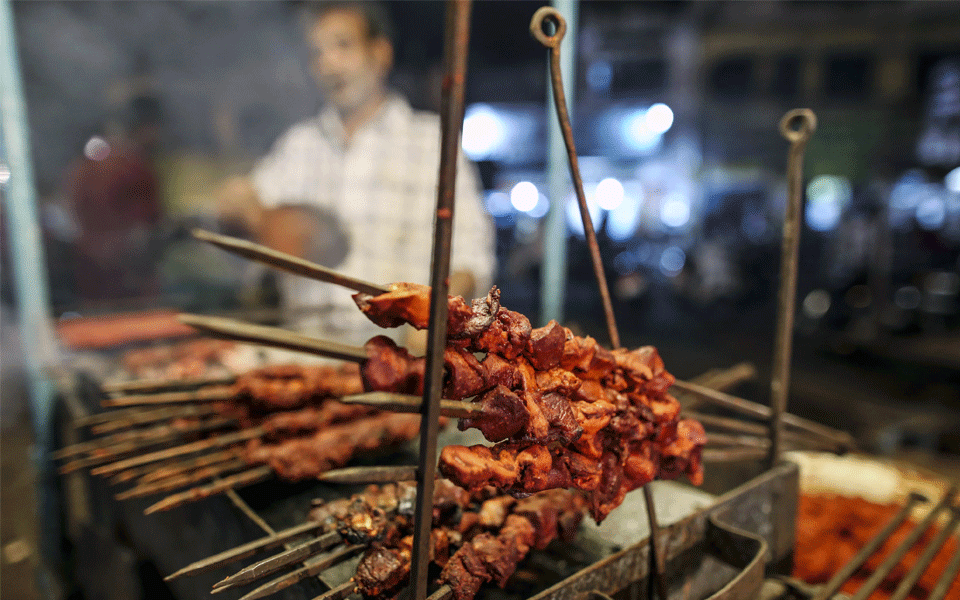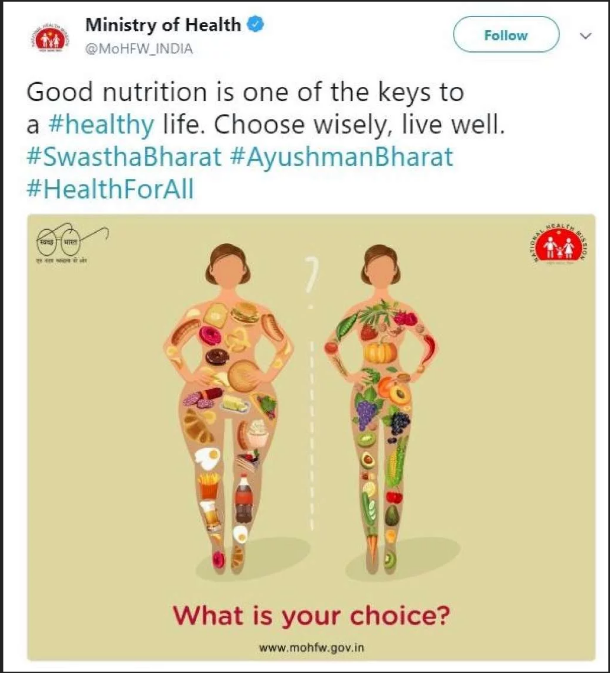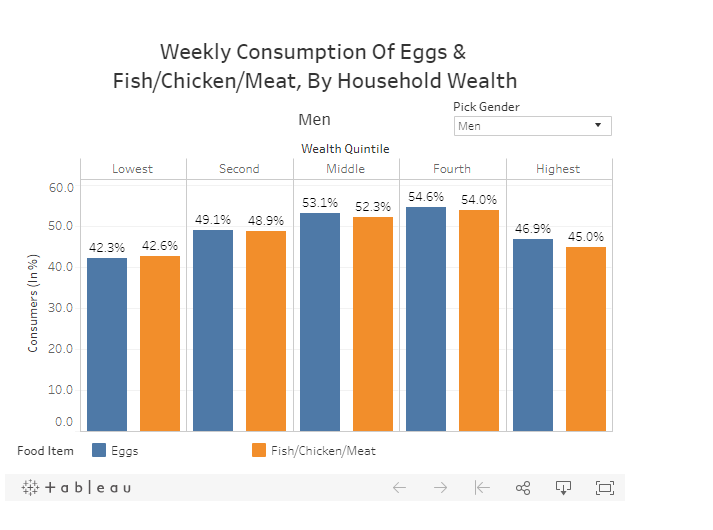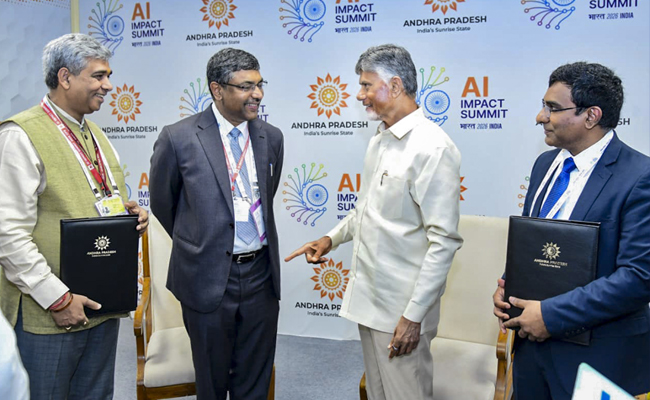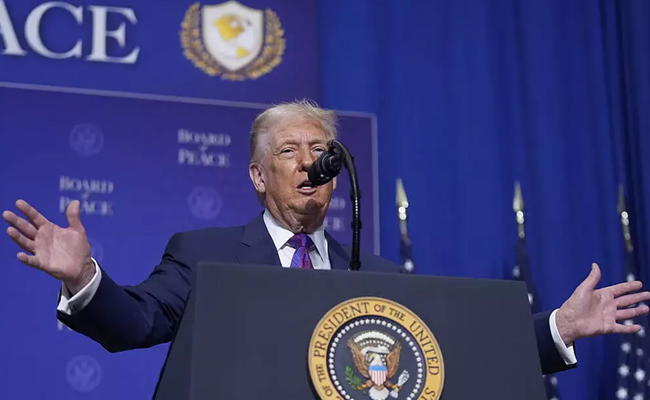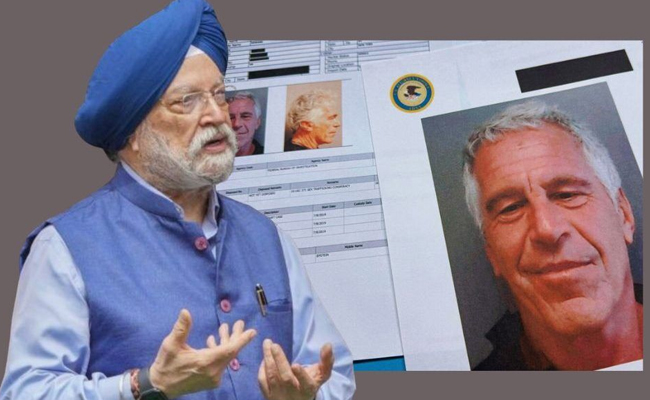New Delhi, May 22: India’s Bharatiya Janata Party-led government has been advocating vegetarianism on grounds of religion and ideology, the latest being an effort by Indian Railways railways to enforce vegetarian menus on all trains on Mahatma Gandhi’s birthday, Oct. 2.
However, around 80 percent of Indian men and 70 percent of women consume eggs, fish, chicken or meat occasionally, if not weekly, according to an IndiaSpend analysis of national health data. But their daily diet tends to be vegetarian, consisting of milk or curd, pulses or beans and dark green and leafy vegetables.
Also Read: Indian Railways To Use Artificial Intelligence To Ensure Hygienic Food On Trains
Overall, 42.8 percent Indian women and 48.9 percent men consumed fish, chicken or meat weekly, according to the National Family Health Survey, 2015-16.
It is important to assess the average diet of an Indian because both malnutrition and obesity are a problem: 53.7 percent women and 22.7 percent men are anaemic and 22.9 percent of women and 20.2 percent of men are thin (with body mass index of less than 18.5), while 20.7 percent of women and 18.9 percent men are overweight or obese, according to the same data.
The Ministry of Health and Family Welfare had recently courted controversy when it tweeted an image that grouped non-vegetarian foods such as eggs and meat with junk food, implying that both cause obesity. The image was subsequently deleted.
In 2015, Madhya Pradesh government had banned eggs from meals served in anganwadis or day-care centres allegedly due to pressure from Jain groups.
These moves come despite the recommendations of the National Institute of Nutrition, Hyderabad, which advocate the consumption of protein-rich animal foods such as milk, meat, fish and eggs–and plant foods such as pulses and legumes.
“Animal proteins are of high quality as they provide all the essential amino acids in right proportions, while plant or vegetable proteins are not of the same quality because of their low content of some of the essential amino acids” said NIN’s dietary guidelines.
Also Read: Why India’s Packaged Food Market Will Jump To $200 Billion In A Decade
The Indian Railways are now planning to celebrate the birth anniversary of Mahatma Gandhi, a vegetarian, as ‘vegetarian day’. It plans to serve only vegetarian food on its premises and appeal to all its employees to abjure meat that day, reported Times of India on May 21, 2018.
Dietary risk, including poor diet–low in fruits, vegetables, whole grain but high in salt, fats–is the third biggest risk factor for death and disability in India after air pollution and malnutrition, IndiaSpendreported in November, 2017.
In Women, 37.4 Percent Have Eggs, 36 Percent Fish, Chicken Or Meat Weekly
More men than women eat non-vegetarian food in India; almost three in ten women do not consume eggs (29.3 percent) and chicken, fish or meat (29.9 percent) compared to two in ten men who do not consume eggs (19.6 percent) and chicken, fish or meat (21.6 percent).
Among women between the age of 15-45 years, 45 percent have milk and curd, 44.8 percent have pulses or beans, and 47.2 percent have dark green, leafy vegetables daily, while 37.4 percent eat eggs and 36.6 percent eat fish, chicken or meat weekly. Almost half–51.8 percent–of them have fruits occasionally.
Among men between 15 and 45 years of age, 46.2 percent have milk and curd, 46.5 percent have pulses or beans, 46.6 percent have dark green, leafy vegetables daily ,while 44.7 percent eat eggs, 43.3 percent eat fish, chicken or meat weekly and 47.6 percent have fruits occasionally.
Age, Marital Status, Geography, Wealth And Caste Are Factors
Weekly consumption of food items is not the same for all groups and follows different trends. But those over 19 years tend to eat more eggs and any kind of meat every week.
Among men, the highest consumption of eggs and meat was among those who were never married (50.5 percent for eggs and 49.2 percent for fish, chicken or meat). Also, urban men (53.8 percent for eggs, 52.8 percent for fish, chicken or meat) eat more non-vegetarian food than rural men (47.1 percent for eggs, 46.5 percent for fish, chicken or meat).
Among women, the highest consumption of eggs and meat was among those who were widowed or divorced or deserted (41.5 percent for eggs and 47.4 percent for fish, chicken or meat).
Education appears to decide the choice of vegetarian/non-vegetarian foods. Those who have studied up to five years eat the highest amount of eggs and meat–men (54.2 percent and 57.6 percent) and women (48.2 percent and 51.8 percent).
Among religions, Christians consume eggs and meat the most–men (71.5 percent and 75.6 percent) and women (64.7 percent and 74.2 percent). This is followed by Muslim men (66.5 percent and 73.1 percent) and women (59.7 percent and 67.3 percent).
The highest consumption of eggs and fish, chicken or meat is among those who said they did not know their caste–men (49.2 percent and 51.6 percent). This holds true for women as well for eggs; for fish, chicken and meat it is highest in ‘other’ caste.
And while the consumption of eggs and meat increases with household wealth, a lower percentage of men and women among the richest 20 percent Indians consume eggs and meat.
Most Meat Eaters In Kerala, Fewest In Punjab
Data on women show that Kerala (92.8 percent), Goa (85.7 percent) and Assam (80.4 percent) have the highest weekly consumers of fish, chicken or meat, while Punjab (4 percent), Rajasthan (6 percent) and Haryana (7.8 percent) rank the lowest.
Figures for men show that Tripura (94.8 percent), Kerala (90.1 percent) and Goa (88 percent) are the highest weekly consumers of fish, chicken or meat, while Punjab (10 percent), Rajasthan (10.2 percent) and Haryana (13 percent) are the lowest.
The consumption of meat on a weekly basis is high in the northeast and south India. It is the lowest in the north for both the genders.
(Yadavar is a principal correspondent with IndiaSpend.)
This article has been published in arrangement with IndiaSpend.
Let the Truth be known. If you read VB and like VB, please be a VB Supporter and Help us deliver the Truth to one and all.
New Delhi/Amaravati (PTI): Andhra Pradesh Chief Minister N Chandrababu Naidu on Friday said the state is taking steps to transform itself into a knowledge and creator economy hub with a strong focus on artificial intelligence and quantum technology.
He noted that Andhra Pradesh has abundant tech-driven youth and the government is formulating plans to train them in futuristic technologies with support from global technology firms.
"Our goal is to transform Andhra Pradesh into a knowledge hub by focusing on AI, quantum computing, data centres, drone cities and space cities. The youth will remain our biggest asset over the next 25 years, and we seek global partnerships to scale up the creator economy," said Naidu during his interactions at the India AI Impact Summit 2026 in Delhi.
Naidu, who participated in the summit in the national capital, also held meetings with several global technology leaders and industrialists to explore collaborations in artificial intelligence, clean energy and innovation ecosystems.
He met Adobe CEO Shantanu Narayen, Autodesk AI Head Mike Haley, Aramco India Director Abdul Rehman AiThukair, LEGO Education Vice President Tom Hall, Aadhaar Founder and CTO Srikanth Nadhamuni, Khosla Ventures Managing Partner Vinod Khosla and others at the AP Pavilion.
The chief minister also held discussions with Saudi Aramco representatives on clean energy projects, including solar initiatives, and invited the company to expand operations in Andhra Pradesh, stating that the state is highly suitable for green energy production.
He sought support from NVIDIA Vice President Callista Redmond for establishing AI Living Labs and proposed partnerships through the Ratan Tata Innovation Hub to promote youth innovation, including collaborations with IIT Tirupati and Indian Institute of Science Education and Research (IISER) Tirupati under the Andhra Pradesh Future Innovation and Research for Science and Technology (AP FIRST) initiative.
Naidu urged Autodesk leadership to support the development of Global Capability Centres in design engineering and requested the establishment of an Innovation Academy in Amaravati aligned with quantum technology, besides proposing AI and robotics learning labs in partnership with LEGO Education.
He also discussed AI-driven smart governance solutions with Quantela Inc Chairman Sridhar Gadhi, while World Bank Group Digital AI Regional Director Mahesh Uttamchandani met Naidu on the sidelines of the summit.
Following the meetings, Naidu visited various exhibition stalls at the summit, including those of NVIDIA, Tata, Intel and Microsoft, and reviewed AI applications across agriculture, healthcare and industry.

